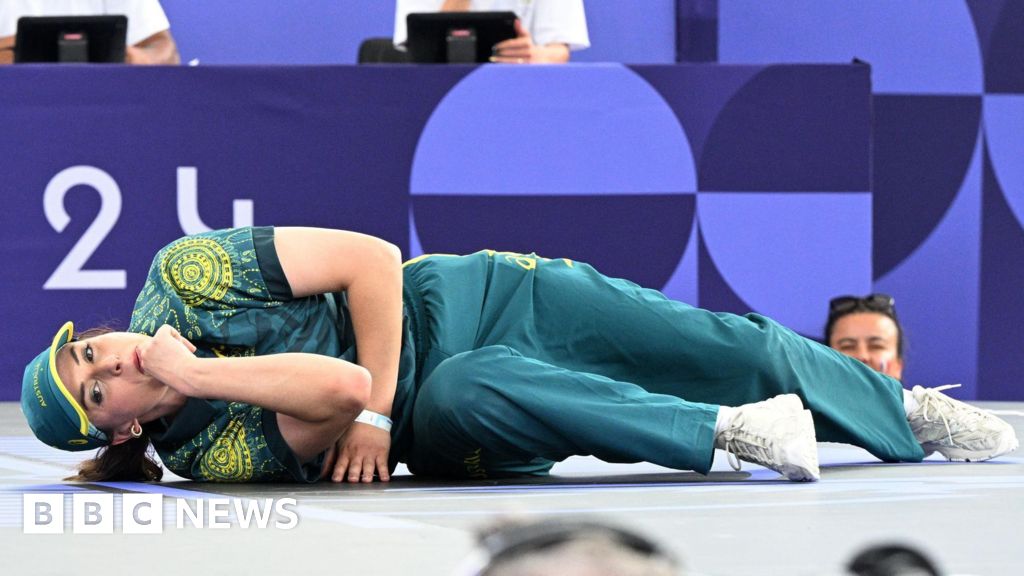Rachael Gunn remains the number one female breakdancer in the world, despite a controversial Olympic performance for Team Australia that divided the internet and left her with a score of zero.
Responding to questions about its rankings, the sport’s governing body has issued a statement explaining its methodology to “address concerns” and “provide clarity”.
It said each athlete was assessed based on their top four performances in the last 12 months and that Olympic events, including qualifiers, were excluded.
Gunn, who performs as Raygun, has continued to defend her record as Australia’s best B-girl amid questions over her qualifications.
The 37-year-old university lecturer failed to score any points in all three of her competition rounds in Paris, with a routine that included unorthodox moves, such as the sprinkler and the kangaroo hop.
“The record is there. But anything can happen in a battle,” she said in an interview last week, when asked about her polarising performance.
The World DanceSport Federation (WDSF) has also come under intense public scrutiny not just for its rankings, but its “credibility” as a voice for the sport.
In Tuesday’s statement the WDSF tried to address criticisms that had been swirling online over the transparency of its rankings head on.
It explained that “ranking events” had intentionally not been held between the end of 2023 and the start of the Olympics, to allow athletes to “focus solely” on the Games.
That had created a set of “unique circumstances” which meant that some athletes had been ranked based only on a single event.
In Gunn’s case the 1,000 points, which place her at the top of the table, come from a first-place finish at the Oceania continental championships which were held in October of 2023.
“The world rankings as they currently stand should be interpreted in conjunction with results from recent global breaking competitions for a more accurate reflection of the global competitive landscape,” the WDSF statement added.
The weeks-long saga over Raygun’s performance has split opinion within the breakdancing community, with some throwing their support behind the embattled athlete, while others have publicly accused her of making a mockery of the sport.
It has also sparked questions over whether breaking – which debuted in Paris but is not on the programme for the 2028 Games in Los Angeles – should have ever been included in the Olympics, due to the organic nature of the genre, which doesn’t necessarily suit organised competition.
In an interview with the Associated Press, vice-president of Breaking for Gold USA Zack Slusser argued the WDSF didn’t have “any real merit” with the breaking community, and that it had failed to organise events that would “contribute to creating an accurate world ranking”.
Breakers were only performing at WDSF organised events to secure points to qualify for the Olympics, he claimed, adding that they had “no incentive” or “desire” to continue participating in WDSF events post-Paris.

